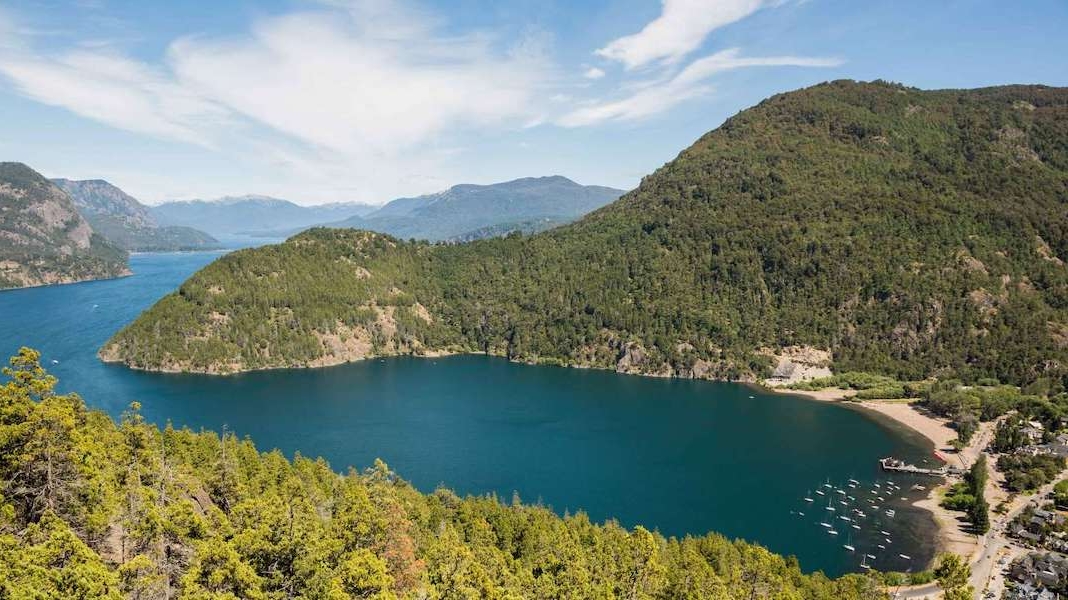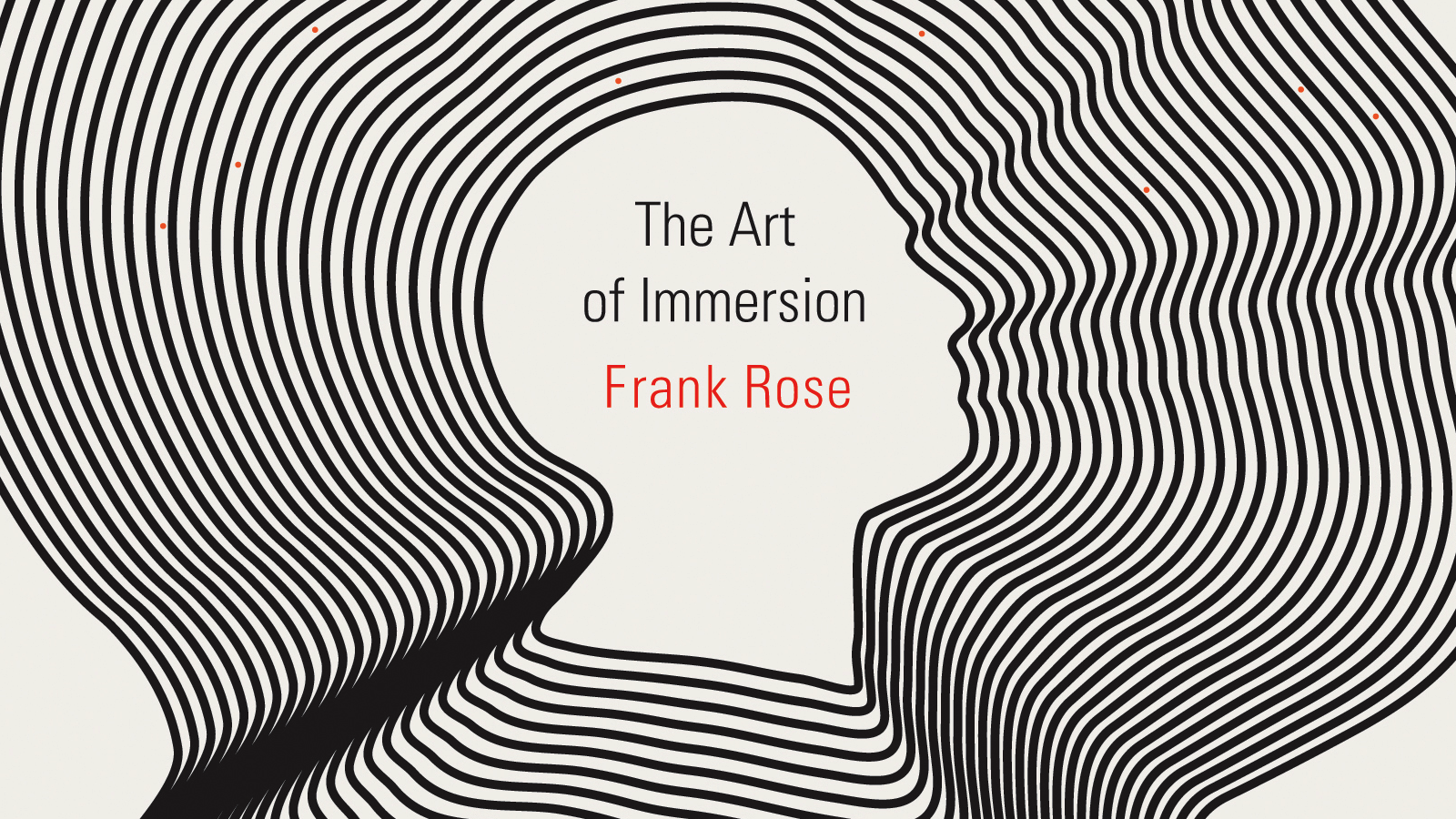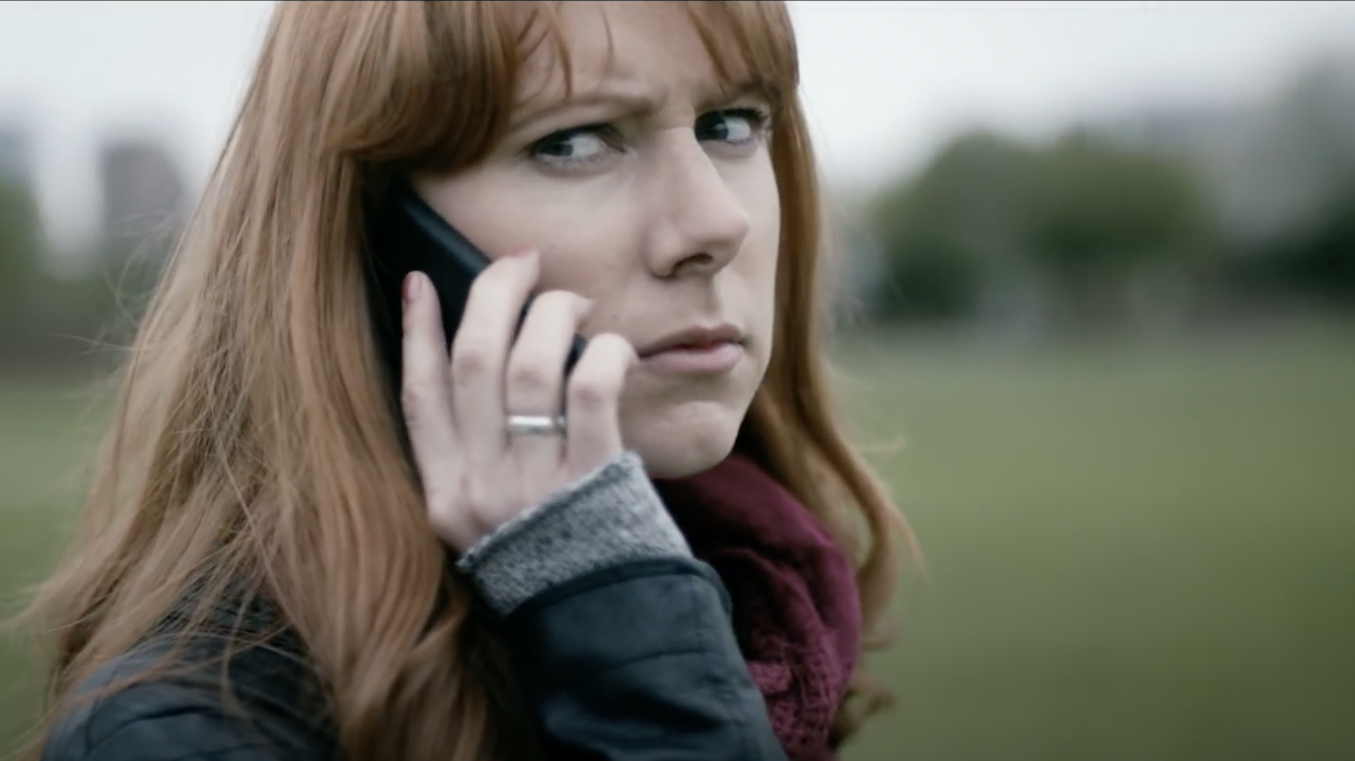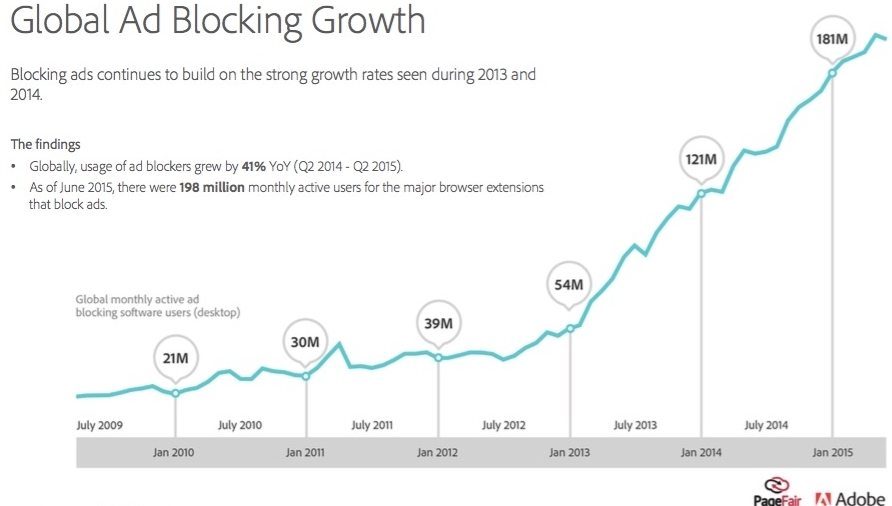
August 22, 2011
A couple of years ago I found myself in a small town in Patagonia called San Martín de los Andes. The town lies in a fold in the mountains, but a short, steep hike through the woods gets you to an extraordinary vista point—the dry, scrubby buttes of the Patagonian steppes in one direction, the blue waters of Lake Lácar and the snowcapped peaks of the Andes in the other. But as with much of Patagonia, the journey is every bit as remarkable as the destination. In this case it meant following a seemingly random network of trails that wend their way up the ridge. About halfway up I encountered the trails’ author—a half-dozen head of cattle. There was no “right” path, for the cattle any more than for the people. Instead, the paths all converged at a dusty spot near the summit where three old women sat on the porch of a cabin. As I approached, one of the women stood up and asked for a peso. I paid the toll and walked past a ramshackle house sporting a large satellite dish to the lookout, where I got to see a condor from above. Choose your own adventure indeed.
I’m reminded of that walk whenever somebody mentions transmedia, the seemingly radical new approach to narrative that was mapped out several years ago by Henry Jenkins, then a professor of media studies at MIT and now Provost’s Professor at USC Annenberg. Henry once defined transmedia in his blog as “integral elements of a fiction . . . dispersed systematically across multiple delivery channels for the purpose of creating a unified and coordinated entertainment experience.” (He didn’t mention the satellite dish or the three old women and their pay wall, but they’re part of nearly any entertainment experience these days.) Earlier this month, in a post called Transmedia 202, he attempted to explain how the trails work and, by the way, defend them against those who would try to pave and straighten them and/or get obsessed with signage. It’s an important read.
(For the record, the term “deep media,” which I borrowed from Nigel Hollis of Millward Brown and others, overlaps considerably with Henry’s concept of transmedia, the main difference being that one places the emphasis on the goal—immersiveness—while the other focuses more on process. For a more long-winded explanation, see the interview Henry conducted with me earlier this year. As I said then, I wouldn’t be surprised if both terms disappeared once this form of storytelling became ubiquitous and therefore taken for granted. Does anybody still say “talkies”?)
An idea is a fragile thing. And at this point, the idea that we’re on the cusp of a new form of storytelling seems to have reached that weird place where much of the world still hasn’t accepted it but many of those who have are too busy squabbling over the details to actually focus on doing it. As Nick DeMartino, formerly of the American Film Institute, noted in a recent post at Tribeca Film’s Future of Film blog, the discussion devolved into an all-out flame war in the wake of the “New Worlds” panel at this year’s SXSW Interactive conference. It was against this backdrop that Henry weighed in.
The most basic distinction he makes is between adapting a story from one entertainment medium to another—something Hollywood has been doing routinely for decades—and extending a story into other media. Borrowing a line from ngmoco founder Neil Young, he calls the point of this kind of story-extension “additive comprehension.” As an example he cites Falling Skies, the summer sci-fi series that Steven Spielberg produced for TNT—an alien-invasion story that echoes the H.G. Wells novel The War of the Worlds, which Spielberg adapted for the movies several years ago. Explaining the difference between extending and adapting, Henry notes:
The Falling Skies graphic novel is a prequel which tells us about the disappearance of the middle brother [during the invasion] and thus helps to provide insights into the motives of the characters on the Turner television series. In this case, additive comprehension takes the form of back story, but the same graphic novel also helps us to better understand the organization of the resistance movement, which we can see as part of a world-building process.
Most transmedia content, Henry goes on to say, serves one or more of the following functions:
- Offers backstory
- Maps the World
- Offers us other character’s perspectives on the action
- Deepens audience engagement.
Another point Henry makes is that there’s nothing all that new about this stuff. Falling Skies and its ilk were prefigured, he notes, by the works of Walt Disney, J.R.R. Tolkien, and L. Frank Baum, who extended his 1900 novel The Wonderful Wizard of Oz into various other media, including a stage musical (later adapted into the Judy Garland movie by MGM) and a slide show he presented on the lecture circuit.
I’m as fascinated by early precedents as Henry is. But as significant as they are, I think the critical factor at work today is technology—both the influence of the Internet and the proliferation of screens (computer, television, smartphone, tablet, etc.) that access it. The historical precedent shows us that the impulse to tell stories across different media isn’t new. But it’s the proliferation of devices that deliver a variety of different media—audio, video, text—that makes it feel increasingly natural.
It used to be that every medium was tied to a specific device. Television was something you watched on TV; radio was something you listened to on the radio; a movie was something you went to the movies to see. No longer. Transmedia is what happens when media become uncoupled from the devices that were invented to deliver them. It’s an organic and inevitable response to the world we live in. Like, how else would you tell a story?
Not that we’re really there yet. That’s the problem with the definition debate. To my mind, being free to walk different paths is key to the whole thing. To try to channel an emerging form of narrative into a single definition is not just a mistake; it’s antithetical to the spirit of the time. “Many people are looking for simple formulas and a one-size-fits-all definition, trying to delimit what transmedia is,” Henry writes. That’s not what we need; what we need is to be open to experimentation and innovation:
There is no transmedia formula. Transmedia refers to a set of choices made about the best approach to tell a particular story to a particular audience in a particular context depending on the particular resources available to particular producers. The more we expand the definition, the richer the range of options available to us can be.











Comments
Simon_staffans
- August 22, 2011
Thanks for the post, a very good read. And that's exactly how it is - the minute we are confronted with the definite definition of what transmedia is, that's the minute it's time to start doing something else. Granted, I'd be doing the same thing probably. Just would have to come up with a new catchy term without an existing definition :)
Gary Hayes
- August 22, 2011
I like the 'geographical' metaphor of your introductory post Frank and covered the comparisons in a post called Navigating the World of Multi Platform and Transmedia Ritual back in March: http://www.personalizemedia.com/navigating-the-world-of-multi-platform-transmedia-rituals/
One of the points of my cartographic insight was around the transmedia labelling debate. I see it as something akin to early settlers and explorers. Take my country Australia, the aborigines were living their lives (rich with dreamtime 'immersive' story) for nigh on 40 000 years before someone came along called Mr Cook and started claiming and naming the land around them with new terms and strange new languages. They had already discovered the land, intertwined with it, immersed in it. From their perspective why rename it as if for the first time?
This is part of the issue here. There is a large contingent of experiential story creators who have been in this area, using the new tech & social tools since the late 1980s at least, yet from their POV there appears to be all these new invaders wearing transmedia t-shirts who have just jumped off the holiday tour onto their island. This goes beyond just saying this stuff was already here or now we have a name lets get on with it! Rally time! This is about respecting those who were here before.
Michael Monello
- August 24, 2011
Frank,
I agree with your conclusion - we should enjoy creating in a period of radical reinvention and innovation, free of restrictive ideas about what constitutes "transmedia storytelling" but a shared philosophy or understanding is essential if it is going to develop into a real practice. The definition debate, however, was (and still is) a debate by and for practitioners and not really about these larger concepts of transmedia storytelling. There was no intention to define it for the public in that debate, the public is very capable of doing that on their own. But a definition has far reaching implications for practitioners that go behind theory. For example, the definition adopted by the Producer's Guild has been controversial for excluding some of the most successful projects in the space. This is insignificant to those studying it academically, but it could mean the difference between access to affordable health care or not for many practitioners, or worse a marginalization of the work they have done and are doing (much of it pioneering). Meanwhile, a current Kickstarter project (http://www.kickstarter.com/projects/Adamant/far-west-western-wuxia-mashup-adventure-game) offers anyone who donates $5K the opportunity to become an officially accredited — by the Producer's Guild — "Transmedia Producer" credit as a "free" benefit for donating money, instantly turning the entire credit into a big joke. You couldn't give a writing or directing credit away like that, could you?
Public funding is another issue. Take our brilliant transmedia storytelling friends in Canada, who struggle to win grants in competition against more standard multimedia projects simply because the Canadian granting agencies lack a valid definition. The National Endowment for the Arts this year recognized video games as art, allowing them to apply for funding - how could that happen for transmedia storytelling without a working definition?
Even worse, we've all seen how the advertising industry has abused so many buzzwords right out of existence, failing to ever understand the key concepts behind them. Articles written by respected members of the PR world like Steve Rubel (http://www.forbes.com/2010/10/11/google-eric-schmidt-bieber-facebook-social-networking-storytelling-steve-rubel-cmo-network.html) fail to give any clarity to the meaning of "transmedia storytelling," so every ad agency pumping out TV spots, print ads, and microsites then co-opts the term because it appeared in Forbes and hell, they already make "content" on several platforms, don't they?
Finally, I want to quote from Brian Clark's write up that inspired the epic Facebook discussion where the meat (and heart) of this debate exist: https://www.facebook.com/note.php?note_id=10150246236508993 The final paragraph lays out the most important reason for the debate: "We should test our debate against the goal of, 'Does this enable new ways for us to talk to each other about our work?'" Transmedia might still be an imperfect term, but my mischievous tweets of #antitransmedia don’t fix that or improve the way we use it, and neither does the definition of the PGA credit. Instead we could provoke a debate about something we actually all care about: creative control. If we’re actually a sustainable community, that means we’ll get to have that debate together forever … but it will get richer and more nuanced with time, and split off into multiple different camps of interpretation, and all the other wonderful things that go with a vibrant art form."
The more the phrase is used to describe the same old thing everyone has already been doing (franchising, branding, multi-media etc) the more it becomes (rightfully) maligned as "bullshit" by those hearing it in this context, a scenario that helps absolutely no one, especially the genuine storytellers who actually understand these core philosophies that Henry Jenkins wrote about and you reference. We can agree or disagree whether the definition debate has merit, but as the Producer's Guild issue clearly illustrates it IS happening at many levels and the results DO have real-world implications, so calling it "squabbling over the details" or characterizing the desired outcome as an attempt to "pave and straighten [the trails] and/or get obsessed with signage" is unfair. In fact, I would argue that almost no one who is actually practicing wants that either, which is why the debate is so difficult, because it pits real world realities against the desire to not be boxed in.
Paul Burke
- August 24, 2011
Nice discussion, I have a kind of conflicted response...
I think the definition debate is important for all the reasons Mike superbly outlines.
As for an obsession over signage though - I just don't think that's true. It might look like that online some days, but talking to people in real life, they are busy in their bedrooms and offices, on courses and at conferences, almost everyone is busy "making" - the work is just not out here yet.
Re Gary's comments - I've been playing with story structures since college and until I stumbled across #transmedia a couple of years ago it was damn hard to find like minded folk. So I do of course respect predecessors immensely and have learned very much from them, but I'm also glad of a 'one size doesn't fit all' term we can use to start to talk to each other.
Nick DeMartino
- August 24, 2011
Thanks Frank for the acknowledgment of my post on this topic. As the comments indicate, the debate over terminology and turf is far from settled, even as new work continues to bring audiences to stories in inventive new ways, enlivened, as you suggest, by the march of technology.
Vpisteve
- August 24, 2011
Thanks for the thoughtful post, Frank. Even though I think the major battle is over (see below) and I agree with your conclusion as well, I still think it's important to clarify a couple things, as they're foundational to this whole terminology issue.
But first off, before I go on, can we finally please dispel the myth that if you discuss this stuff you don't have time to actually make this stuff? OK thanks, now that we've gotten that out of the way….:)
Mike's comments were really spot on. I really don't have much to add there, but yes, one of my biggest struggles with this whole issue has been the friction between my absolute reluctance to put things further in a box (which goes way back back to when I founded ARGN) and the need to clarify the difference between the real storytelling going on and the errant use of whatever the flavor-of-the-day buzzword is.
In its simplest terms, the confusion stems from this:
Continuity management and IP curation across platforms (franchising) is NOT the same thing as telling a single story across multiple platforms, both from a production standpoint and (more importantly) from an audience standpoint. These two experiences feel *very* different to a consumer. The thing is, people are using the term Transmedia Storytelling to describe both, which has been the bone of contention, and a valid one at that. In your quote from Jenkins' 202 post, your correctly quoted his call for expanding the definition of transmedia, which I agree with, but you stopped just short of the critical part, where he calls for *one* vital qualifier: "What I want to exclude from this definition is "business as usual" projects which are not exploring the expanded potential of transmedia, but are simply slapping a transmedia label on the same old franchising practices we've seen for decades."
Read that again. What's that I hear? Victory bells ringing? :)
It's been this one small but tantamount exclusion that has been the seed for all my #antitransmedia caterwauling, because if you ask me, it's not the storytellers that should explain their use of the term, but the franchisers, marketers and brand curators, who have been the real usurpers here. Mike Monello, myself and numerous other creators who are part of this awesome and talented world-wide community are on the same general page about this, and now Jenkins validates our position.
So as far as I'm concerned, the battle is over! The issue is settled! I may be cranky, but even I know that it does no good to fight a battle that's already been won.
It's just too bad the opposing viewpoint never seemed to care enough to even enter the conversation. ;) Vive la storytelling! Mort à la franchise!
;)
KH
- August 25, 2011
Merci. This is great discussion and since no woman is stepping in I take the risk. I'm afraid! By the way, Steve, you know that the word 'franchise' in French means to be frank. Isn't that funny? And if you add "parler" which is "to talk" in the sense of getting into a conversation, you obtain "franc-parler" which means that you speak frankly. It fits very well here. It is awesome to learn from you all and especially when the discussion is progressing with each one insight. This is what I am looking at about transmedia circles, a circular way of learning from each others until we can come up with models that will allow creation putting together different skills (expertice) in one project with an innovative business model. Dream. Maybe not. I understand the point from Steve where time comes that we can close a discussion, but I totally agree with Paul whom I would never had met IRL if if was not from Simon here, and so on. It looks like "talking" about "it" with "franc-parler" allows us to get connected so we can go to the next step. It is not easy. For most of the people it is not easy to step in a transmedia crowd or project or understanding, still. And especially in Europe. 27 countries with 22 languages for the EU! The English speaking arc usa-uk-australia is strong. We have a lot of work and talking to go through here! And lots of tech and market and stuff like that to deal with... something I call the "Orange conspiracy" for instance... That is my own "franc-parler". I really appreciate learning and being able to express myself and that is useful for shy people who want to be part of this. Users, audience, friends, whatever. We are human at first and this is a human convergence. It does look like the sixties, or even the "salons" of the Siècle des Lumières of the 18th century. Discussing. (Age of Enlightenment or simply the Enlightenment or Age of Reason - Wikipedia)
Thank you very much.
Frank Rose
- August 27, 2011
Thanks all for your comments. This has been a terrific discussion and one that I hope will clear the air a bit. It has also been a model of Internet decorum. If all commenters were this thoughtful, terms like "flame wars" would die of disuse.
I'm not going to try to address every point, but there are a couple that particularly warrant comment. First, Mike Monello is clearly right about the real-world implications (health insurance, for instance) of the definition the Producers Guild uses in its transmedia producer's credit. I didn't join the debate when the credit was ratified last year because I was racing to finish my book. But this is one place where definition is critical.
Also, Mike and Steve make the point—as does Henry Jenkins in the post that sparked my own—that it's important to distinguish a transmedia production from the standard-issue Hollywood franchise. As Steve noted, Henry's final sentence, following on the quote I used, was, "What I want to exclude from this definition is 'business as usual' projects which are not exploring the expanded potential of transmedia, but are simply slapping a transmedia label on the same old franchising practices we've seen for decades." I did not include that, not because I thought it wasn't important but because I thought I covered the issue earlier in the post, in the Falling Skies discussion. That may well have been a mistake.
The real issue for transmedia I think is buzzword-avoidance. The current evolution of storytelling is at once quite radical and, given the technology we have at hand, entirely natural. There are a lot of people in the entertainment industry who would be more than happy to join the trend without changing or questioning the way they work, which as a rule is within silos defined by increasingly obsolete distribution channels. Transmedia is not about distribution, it's about story. Any approach that doesn't acknowledge this at the outset is not going to move us forward.